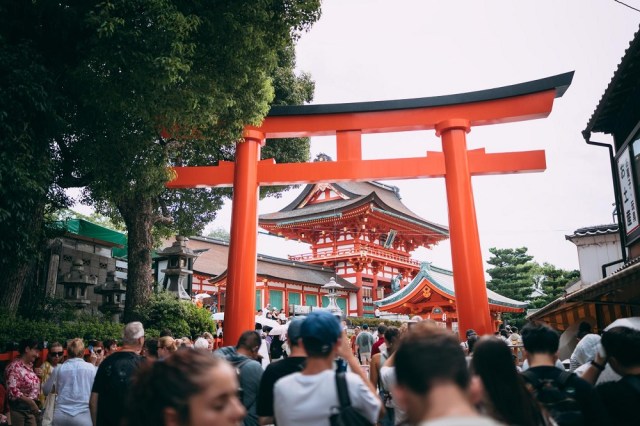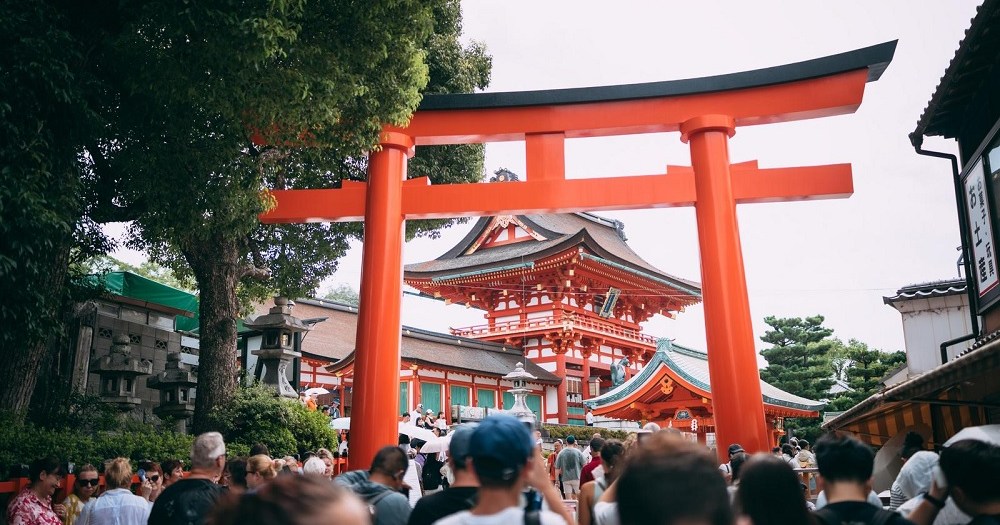
As foreign visitor numbers and overtourism concerns both reach historic highs, policymakers think they may have found a way to use one to address the other.
When planning a trip to Japan, there are a lot of expenses to take into consideration. First, of course, is airfare, the cost of getting here, and then there’s the money you’ll need to spend while in Japan for hotels, local transportation, food, and entertainment. But while it sometimes gets lost in the fine print, you’ll also need to pay in order to get out of Japan.
The “international tourist tax,” as it’s officially termed, is a departure tax that international travelers need to pay before leaving the country. Back in the old days, you actually had to purchase a tax stamp/certificate from a vending machine at the airport, but the departure tax is now usually bundled in as part of your total ticket cost when booking a flight that’s departing from a Japanese airport. Whether travelers are conscious of it or not, though, they still pay the departure tax, and it might be going up by a very big margin soon.
The Japanese government is currently in the middle of discussions for tax revisions for 2026, and among the topics is potentially increasing the departure tax. During a debate in September, one month prior to new prime minister Sanae Takaichi taking office, she said that she would be in favor of raising the departure tax to 3,000 yen (US$20) per person, tripling its current cost of 1,000 yen.
In the 2024 fiscal year the Japanese government collected 52.4 billion yen in departure taxes, and with the country experiencing its largest-ever inbound international tourism boom, tripling the departure tax could have a huge effect on tax revenue. So what would the government do with all that extra cash? Proponents of raising the departure tax say the additional revenue could be put to use combating the ill effects of overtourism.

Overtourism is currently a hot-button issue in Japanese society, and the government taking more active steps to address it would likely be seen as a good thing by most Japanese residents. However, it’s not only foreign tourists who pay departure taxes when flying out of Japan. Japanese citizens must also pay the tax when departing from Japanese airports for international travel, so raising the departure tax will affect them as well. To offset this, some policymakers have proposed reducing passport fees for Japanese nationals. Currently, obtaining a 10-year passport in Japan involves fees of 15,900 yen, and officials have estimated that 10,000 yen could be knocked off of that and offset by the increased departure tax revenues. If the departure tax does indeed jump from 1,000 yen to 3,000, even a 10,000-yen discount on 10-year passport fees would only end up benefiting Japanese people who travel overseas no more than once every two years.
Getting back to the topic of using increased departure tax fees, with the majority of the increased revenue ostensibly coming from foreign tourists in Japan, to combat overtourism, there are a number of points to consider. First, while no one would like having to pay an extra 2,000 yen per person in their party, that increase is unlikely to dissuade many tourists from coming to Japan. It’s a drop in the bucket compared to the total cost of a Japanese vacation, especially in light of the currently very favorable exchange rate for foreign tourists.
So if raising the departure tax isn’t going to reduce the number of foreign tourists, how is it going to help alleviate overtourism concerns? Ideas have been floated, such as using the extra tax revenue for things such as building more parking lots in an effort to decrease congestion on public transportation and roads. Other proposals have been to use the money to introduce reservation systems at popular tourism sites for better crowd management, or installing more public trash cans to decrease litter or increase public awareness campaigns aimed at foreign tourists reminding them to mind their manners while in Japan. Whether watching as their cityscapes transition to more parking spaces and posters asking people to have common courtesy, or having to book in advance to visit local cultural sites, are the sort of overtourism solutions Japanese residents want or not remains to be seen.
Source: Mainichi Shimbun via Yahoo! Japan News, Nihon Keizai Shimbun
Top image: Pakutaso
Insert images: Pakutaso
● Want to hear about SoraNews24’s latest articles as soon as they’re published? Follow us on Facebook and Twitter!
Like this:
Like Loading…


AloJapan.com